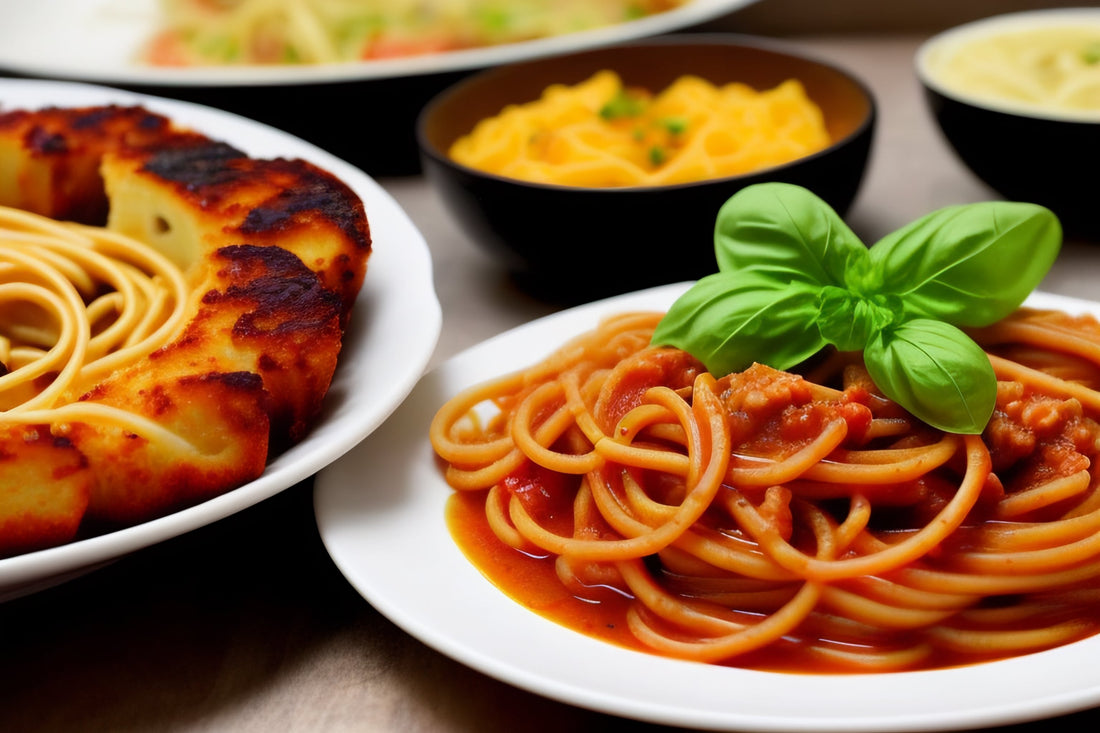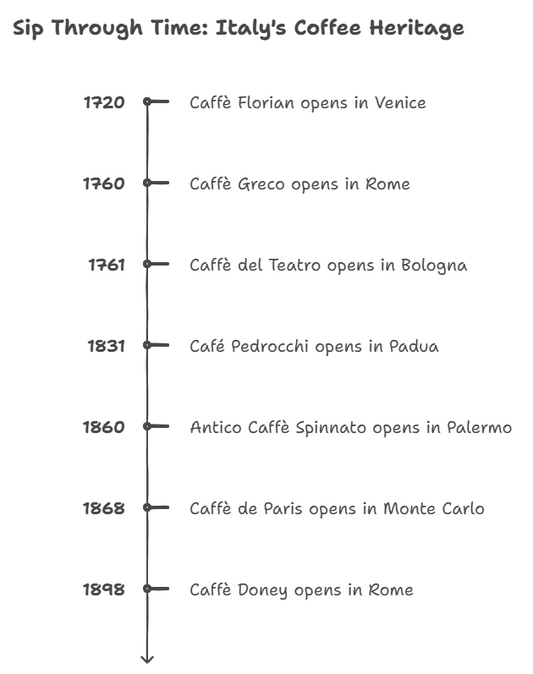
Italian cuisine is known for its diverse and flavorful dishes, which have been influenced by a variety of cultural, historical, and regional factors. From classic pasta dishes like spaghetti alla carbonara and lasagna to wood-fired pizzas and savory stews like minestrone and ragu alla Bolognese, Italian food is enjoyed by people all around the world.
But what makes Italian food so special, and what sets it apart from other cuisines? Here are some key factors that contribute to the unique character and appeal of Italian food that we all know and love:
- Long culinary history
- Focus on fresh, seasonal ingredients
- Use of fresh pasta
- The variety of dishes
- The use of herbs and spices
- The focus on simplicity
- The way the cuisine lets olive oil shine
- The emphasis on regional specialties
- The emphasis on family and community
- The use of vegetables
- The importance of presentation
Long culinary history
Italy has a long culinary history that dates back to ancient Rome, and many of the dishes that are popular today have their roots in this rich culinary tradition. For example, pasta has been a staple of the Italian diet for centuries, and the various shapes and sauces that we enjoy today were developed over time as the dish evolved and adapted to local tastes and ingredients. This long history of culinary experimentation and innovation has contributed to the diversity and complexity of Italian cuisine.
Focus on fresh, seasonal ingredients
Italian cuisine places a strong emphasis on using fresh, seasonal ingredients in their dishes. This means that the flavors of the dishes are at their peak and the dishes are healthier because they are not using ingredients that have been preserved or frozen for long periods of time.
The cuisine is known for its use of seasonal ingredients and dishes will often change with the seasons. In the summer, dishes might feature fresh, ripe tomatoes and in the winter, dishes might include hearty root vegetables.
In Italy, it's also not uncommon to see people shopping for produce at local markets or farms, or picking their own herbs and vegetables from home gardens. This focus on fresh, high-quality ingredients is a key factor in the deliciousness of Italian food.
Use of fresh pasta
While dried pasta is more common in the United States, fresh pasta is a key component of many Italian dishes, and it's often made from scratch using just a few simple ingredients: flour, eggs, and water.
The dough is then rolled out and cut into a variety of shapes, such as spaghetti, fettuccine, and rigatoni. Fresh pasta has a delicate, chewy texture that is much different from dried pasta, and it's one of the things that makes Italian food so special.
The variety of dishes
Italian food is not just about pasta and pizza. It is a cuisine that has a wide range of dishes, including soups, stews, risottos, polenta, and many others. Each region of Italy has its own unique dishes and specialties, making it a diverse and interesting cuisine to explore.
The use of herbs and spices
Italian food is known for its bold flavors and this is often achieved through the use of herbs and spices. Basil, oregano, parsley, and rosemary are commonly used in Italian dishes to add flavor and depth. Garlic and chili flakes are also used to add a little heat to dishes.
The focus on simplicity
While some Italian dishes can be complex, many of them are also known for their simplicity. A dish like spaghetti with tomato sauce, for example, is made with just a few ingredients but is packed with flavor. The key is to use high-quality ingredients and let their natural flavors shine.
Find out more about how Italian food stands out in a crowd with simplicity in our other post.
The way the cuisine lets olive oil shine
Olive oil is a staple in Italian cuisine and is used in many dishes as a cooking oil and for drizzling over finished dishes. It is known for its healthy fats and rich, distinctive flavor.
The emphasis on regional specialties
Italian cuisine is known for its regional specialties and each region has its own unique dishes and ingredients. In the north, dishes tend to be heavier and made with ingredients like butter, cream, and cheese. In the south, dishes are often lighter and made with ingredients like olive oil, tomatoes, and seafood.
The emphasis on family and community
I’m sure you’ve seen shows with large Italian families coming together with food cooked by a beloved grandparent. Well, that image is true - food is an important part of Italian culture and meals are often a time for families and friends to come together. Meals are often a leisurely affair, with multiple courses and plenty of time to sit and talk.
The use of vegetables
Italian cuisine is known for its use of fresh vegetables, which are often used to create flavorful and healthy dishes. From the roasted vegetables that are popular in the region of Umbria to the zucchini and eggplant dishes that are common in Sicily, vegetables play a key role in many Italian dishes.
Are you looking for delicious vegan food in Italy? We have a guide that will tell you all about the best vegan food in Italy for all budgets.
The importance of presentation
In Italy, food is not just about sustenance, it is also about the experience of eating. This means that presentation is important and dishes are often presented in a visually appealing way.
Conclusion
Italian cuisine is special for many reasons. From its use of fresh, high-quality ingredients and its focus on simple, bold flavors, to its regional diversity and long culinary history, many factors contribute to the unique character and appeal of Italian food.
Whether it's classic dishes like pasta and pizza, or more modern creations that draw on Italy's rich culinary tradition, Italian food is loved by people all around the world for its delicious and satisfying flavors!




